Businesses are realising the importance of implementing HR management software that can help HR managers streamline workplace processes, and help with employee training and tracking, alongside assisting remote workers’ capability of improved project management. Deciding which HR Management software will be most beneficial to your business can be challenging, as each one has different features. Here is a list of our top 10 HR Management Software for HR Managers.
1. Rippling
Rippling is the best to automate workplaces and the workflow of a company.
Rippling stands out with a remarkable feature that aids four crucial departments in your organisation: Human Resources (HR), Information Technology (IT), Finance, and Engineering. This adaptability empowers you to establish automated workflows not limited to HR but extending to various operational areas.
Specifically, Rippling excels in automating procedures triggered by events like an employee’s PTO balance, tenure, or job title. You enjoy the freedom to craft personalised if/then statements to execute a diverse array of tasks, even involving third-party applications, contingent upon specific conditions.
Moreover, a Rippling subscription includes a range of impressive features, encompassing benefits administration, payroll management, applicant tracking, and learning management. Running payroll is incredibly efficient, taking just 90 seconds, with the system autonomously handling all payroll tax computations, simplifying the payday process and mitigating associated complexities.
![]()
Pros of Rippling
|
Cons of Rippling
|
Get Started With Rippling Here >>>
2. BambooHR
BambooHR is the best platform for employee self-service.
It is a unified HR platform that helps businesses streamline essential HR functions, such as recruitment, onboarding, and payroll. It replaces disjointed spreadsheets, restrictive software, and traditional paperwork with a single, centralised solution.
BambooHR’s automation tools accompany each step of the employee lifecycle, helping businesses to stay agile and responsive in their evolving market and work environment. For example, BambooHR can automate tasks such as job posting, applicant screening, and new hire onboarding. This frees up HR professionals to focus on more strategic initiatives.
BambooHR also integrates seamlessly with over 125 pre-established connections, including popular CRM, ERP, and accounting software. This allows businesses to achieve a wide range of HR and business objectives with minimal effort.
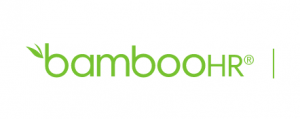
Pros of BambooHR
|
Cons of BambooHR
|
3. monday.com
Monday.com, has been reviewed repeatedly as one of the best HR Management Software for business for overall HR practices.
It is suitable for teams of all sizes and industries and can be used to manage both simple and complex projects or workflows. It’s also a great tool for remote teams, as it provides a central place for everyone to collaborate and communicate.
In addition, monday.com seamlessly integrates with a multitude of other popular apps and tools, such as Outlook, Microsoft Teams, Zoom, Excel, Gmail, Google Drive, and Dropbox. This allows you to continue working with the software you’re already familiar with, all within the monday.com platform. Overall, monday.com is a versatile and powerful productivity platform that can help teams of all sizes get more done.

Pros of monday.com
|
Cons of monday.com
|
Get Started With Monday.com Here >>>
4. Workday
Workday is particularly well-suited for medium to large enterprises seeking specialised HR and financial management solutions across multiple locations.
One of Workday’s standout features is its ability to generate personalised workplace reports. You can tailor your dashboard to showcase automatically updated information, including year-to-date (YTD) turnover data classified by voluntary, new hire, and high performer turnover, as well as headcount metrics, open job positions, and hiring and termination data broken down by quarter.
Furthermore, a notable aspect that distinguishes Workday as a top choice is its informative organisational charts, providing you with the capability to offer feedback or implement promotions directly through an intuitive drag-and-drop interface. The talent acquisition process is streamlined by a skill-focused approach that simplifies candidate selection based on their expertise.
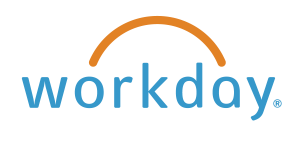
Pros of Workday
|
Cons of Workday
|
5. Zenefits
The Zenefits platform is a comprehensive, all-in-one solution. Its core elements, encompassing HR, payroll, and benefits, are intricately designed to work in harmony. Notably, Zenefits HR and payroll seamlessly integrate, enabling your company to effectively manage HR tools such as time tracking and payroll functionalities, including compensation bonuses, concurrently.
Zenefits HR platform boasts several notable analytical features for your organisation. Specifically, it offers in-depth insights into headcount activities, employee demographics, employee compensation, stock options, and more. Additionally, the platform supports a mobile app, granting you and your team the flexibility to access information while on the move.

Pros of Zenefits
|
Cons of Zenefits
|
6. HiBob or bob
HiBob is an innovative and unique platform for people management, designed to equip rapidly growing companies with powerful tools for creative workforce management, enhanced productivity, and improved employee experiences. Hibob‘s solutions are modular and cater to specific HR needs, encompassing employee onboarding, attendance management, time-off tracking, payroll reporting, benefits administration, and more.

Pros of bob
|
Cons of bob
|
7. Paycor
While Paycor is often recognised for its payroll capabilities, it also offers robust HR features, enabling the automation of routine tasks for significant time savings. The software includes employee self-service tools, allowing individuals to update their profiles, e-sign documents, and complete assigned tasks without disrupting daily operations.
Paycor’s clear employee reports are noteworthy, providing instant access to key data such as headcount, turnover rates, compensation levels, and absenteeism.
Small businesses with under 50 employees can derive significant benefits from Paycor’s integrated HR and payroll software. For companies exceeding 50 employees, pricing details are available upon consultation with a representative, making it uncertain whether it remains a cost-effective solution.
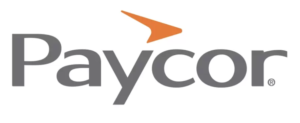
Pros of Paycor
|
Cons of Paycor
|
8. ClickUp
If your company already has solutions in place for aspects like payroll or benefits and simply requires assistance in maintaining organisational efficiency, then ClickUp is a suitable choice. While ClickUp is primarily recognised as project management software, it offers a specialised setup for HR management as well. Your HR team will have its dedicated Space, essentially a centralised repository for all your documents and information. Within this Space, you can establish new folders and generate unlimited task lists, categorised by stage, due date, or priority.
ClickUp proves effective for recruitment, enabling easy organisation of applicants and monitoring outreach efforts. You can simply add them to your Space and reposition them based on their stage in the process. The same applies to onboarding, where you can create traceable tasks and documents, while also leaving comments and feedback directly within the application.
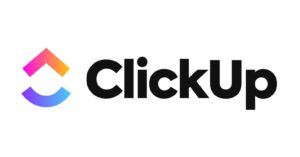
Pros of ClickUp
|
Cons of ClickUp
|
9. Factorial HR
Founded in 2016, Factorial HR is particularly advantageous for small to medium-sized enterprises. This HR software company is dedicated to simplifying and automating intricate HR procedures, employing both free software and labour consulting services. Factorial’s primary objective is to equip HR managers with the essential tools required to streamline daily operations, alleviate administrative burdens and foster enhanced productivity and employee contentment within the organisation.
Focusing on SaaS solutions, Factorial is designed to tackle the prevalent challenges encountered by small and medium-sized businesses in the realm of human resources. Their ultimate mission revolves around optimising HR management, elevating decision-making processes, and efficiently resolving typical HR issues through their complimentary software solution.
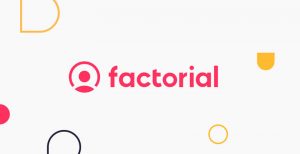
Pros of Factorial
|
Cons of Factorial
|
10. Namely
Namely consolidates HR information within a unified platform. Leveraging technology and a team of HR professionals, Namely endeavours to equip HR teams with a comprehensive HR system tailored for mid-sized companies (ranging from 25 to 1000 employees).
Namely’s comprehensive HR solution encompasses a range of features, including HR analytics, payroll management, benefits administration, enrollment assistance, time management tools, performance assessments, applicant tracking, employee onboarding, compliance resources, access to live HR advisors, and more.
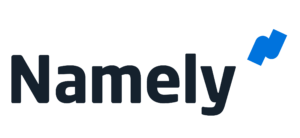
Pros of Namely
|
Cons of Namely
|



